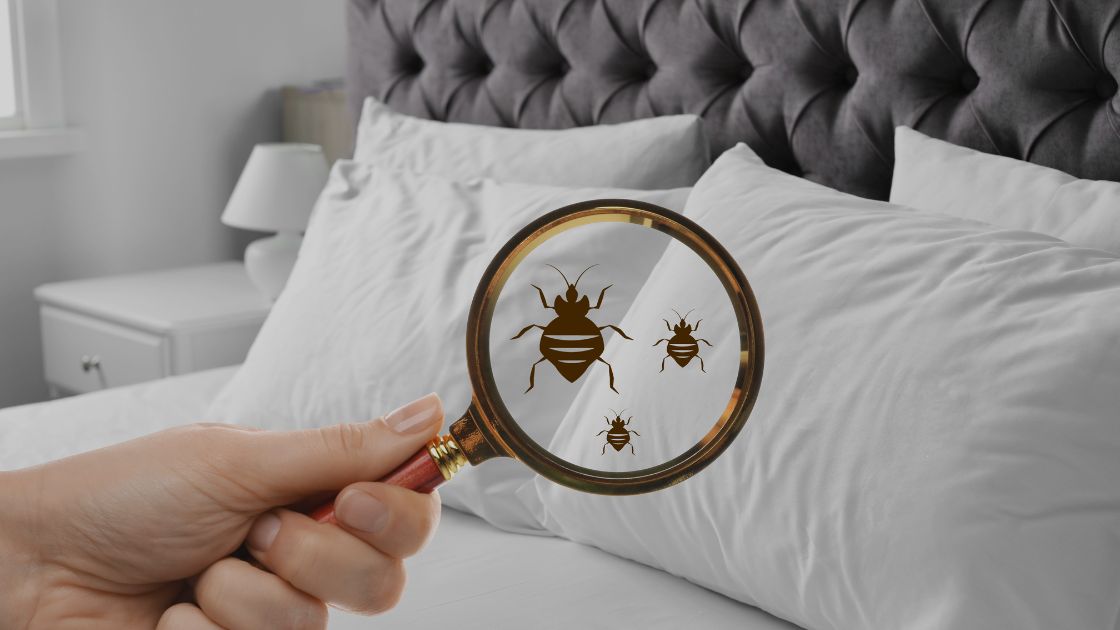Orlando, FL – Florida, a state celebrated for its beaches, theme parks, and vibrant tourism industry, is now contending with an unwelcome visitor: a growing bed bug invasion. Once nearly eradicated in the U.S., bed bugs have resurged in recent decades, and Florida’s climate, tourism, and urban density make it one of the hardest-hit states. Cities across the Sunshine State are now struggling to contain these pests, protect residents, and reassure visitors.
Why Florida Is a Hotspot for Bed Bugs
Several factors combine to create the perfect storm for bed bug infestations in Florida:
- High Tourism: Millions of visitors pass through Florida’s hotels, resorts, and vacation rentals every year, often carrying bed bugs in luggage and clothing.
- Warm, Humid Climate: Bed bugs thrive in Florida’s year-round warmth and humidity, which accelerates their reproduction and survival rates.
- Dense Housing: Major cities with apartment complexes, hotels, and shared housing allow bed bugs to spread rapidly from one unit to another.
According to the Centers for Disease Control and Prevention (CDC), bed bugs are not known to transmit diseases, but their bites can cause allergic reactions, itching, and psychological stress.
The Six Florida Cities Facing the Worst Bed Bug Onslaught
Here’s a closer look at the cities most affected by bed bugs:
Orlando
- Why vulnerable: As Florida’s #1 tourist destination, Orlando attracts millions of visitors annually. With hotels near Walt Disney World and Universal Studios, reports of bed bug infestations are widespread.
- Ranking: Orlando currently ranks #1 in Florida for bed bug complaints.
Fort Myers
- Why vulnerable: Popular among seasonal visitors and beach tourists, Fort Myers sees constant travel turnover.
- Ranking: Ranked #2 in Florida, the city has reported a sharp increase in pest control calls.
Miami
- Why vulnerable: Miami is an international gateway, welcoming travelers from Latin America, the Caribbean, and Europe. Its dense housing and nightlife scene make infestations harder to track.
- Ranking: Miami ranks #5 nationwide for bed bug cases, according to pest control industry reports.
Tampa
- Why vulnerable: Tampa’s mix of tourism, university students, and multi-unit housing creates conditions ripe for infestations.
- Ranking: Tampa consistently appears among the top Florida cities for bed bug activity.
Jacksonville
- Why vulnerable: As one of the fastest-growing metro areas in the U.S., Jacksonville’s expanding housing market has seen a spike in infestations.
- Details: Hotels and short-term rentals are among the most frequently affected.
St. Petersburg
- Why vulnerable: Its proximity to Tampa and popularity with tourists has led to a notable increase in bed bug cases.
- Details: Multi-unit housing complexes have reported cluster infestations.
How Bed Bugs Spread
According to the Hop Town Press, Bed bugs are notoriously stealthy. They often spread through:
- Luggage and bags from infested hotels or vacation rentals.
- Used furniture or mattresses, which can carry hidden eggs and larvae.
- Visitors unknowingly transporting bugs on clothing.
- Movement between units in apartment complexes and condos.
Once inside a home, they hide in mattress seams, furniture cracks, and behind baseboards, emerging at night to feed on human blood.
Warning Signs of Infestation
Residents and travelers should look out for:
- Itchy, clustered bite marks on skin.
- Small blood spots or dark specks on sheets and mattresses.
- Visible bugs or eggs in mattress seams, furniture joints, or carpets.
How Florida Cities and Residents Are Fighting Back
Pest Control Innovations
Florida pest control companies are offering advanced methods, including:
- Heat Treatments – Raising indoor temperatures above 120°F to kill bed bugs at all life stages.
- Targeted Chemical Treatments – Applied to cracks, crevices, and furniture joints.
- Whole-House Plans – Comprehensive eradication strategies with follow-ups.
Public Health Response
Municipalities have increased hotel and rental inspections, issued stricter property management guidelines, and provided public resources for reporting infestations.
Prevention Tips
According to EPA guidelines, residents and travelers can reduce risks by:
- Inspecting hotel rooms before unpacking.
- Avoiding used furniture without thorough inspection.
- Sealing cracks and crevices in walls and floors.
- Washing and heat-drying clothing immediately after travel.
Outlook: A Persistent Battle
Despite aggressive control measures, Florida’s tourism-driven economy, urban density, and humid climate mean the bed bug battle is far from over. Cities like Orlando, Miami, Fort Myers, Tampa, Jacksonville, and St. Petersburg remain on high alert, with thousands of new reports surfacing each year.
Bed bugs may not pose the same health threat as mosquitoes or roaches, but their psychological and financial toll on families, hotels, and local economies is immense. Ongoing vigilance, education, and rapid response will be essential to keep Florida’s infestation under control.
What do you think about Florida’s growing bed bug problem? Have you experienced an infestation in your city? Share your thoughts in the comments at ibwhsmag.com.


 by
by 

